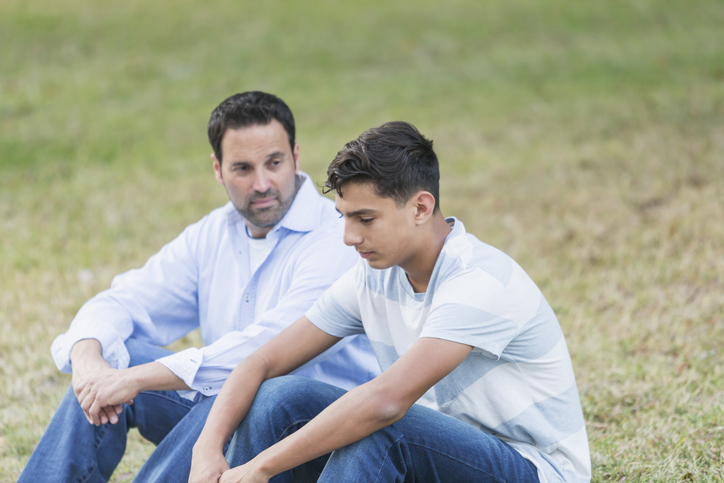Teens tend to be rebellious and experimental. As a result, they can feel tempted to try even drugs and alcohol. If you believe your teen kid is using any substance, you would want to confirm it by observing their behavior, addiction symptoms, etc. Instead of getting disheartened by this discovery, you need to help them overcome this serious issue. Some of the most commonly used substances among high school seniors are marijuana, sedatives, tranquilizers, cough medicines, etc. Salvia, hallucinogens, prescription painkillers, amphetamines, and ecstasy are a few more options. Trying once or twice is not a problem. However, if it develops into a habit or addiction, you have to take proper steps.
At first, taking drugs is usually your choice, but with continuous usage self-control can become harder and harder. This is the biggest sign of addiction. Brain studies of people with addiction show physical changes in parts of the brain that are very important for judgment, decision making, memory, learning and behavior control. Scientists claim that when this happens to the brain, it changes how the brain works and it explains the harmful behaviors of addiction that are so hard to control.

To be precise, you can search for quality drug rehab in Wyoming where teens get addiction treatment and achieve sobriety. However, you first have to find out whether your child is using drugs or not. If they become addicted, you will notice some physical, behavioral, and psychological changes in them. Here is a quick look into them.
Signs of addiction in teens
Regular consumption of drugs or alcohol will manifest different effects at different levels. On a physical level, you can look for redness in the eyes, nosebleeds caused by snorting of cocaine or meth, disturbed sleep, weight fluctuations, smelly clothes, body or breath, tremors, slurry speech, seizures, etc. All of these are signs and issues that a cocaine or meth addict can have. Similarly, you can notice a difference in their psychology. Their attitude or personality can suddenly change. They can have frequent mood swings, causing laughter, anger, irritation, and other emotions. They can be hyperactive, agitated, or fail to focus on anything. Besides, you can watch for the signs of anxiety, fear, or paranoia and a tendency to withdraw without reason.
Other than physical and psychological effects, addiction can also lead to behavioral transformation. They may bunk school, perform poorly in their exams, stay away from extracurricular activities, steal or borrow money, argue with family members, and so on.
Most of these signs can occur in adolescents when they grow up. That’s why it can be challenging to ascertain if your teen has drug use issues. If you are sure about your observations, you can confront them with love and care, and encourage them to seek help from a teen residential treatment center if they agree. However, please record dates, times, and other details about their use of a substance and its name.
Helping your teenager to overcome addiction
Talk about drug abuse
Make sure your kid is in a sober state before touching the matter with them. You can confide in your partner about this step beforehand. It can enable you two to handle things better. Also, the child may not accept if they are using drugs. So, it will be better to approach them with concrete evidence. They can argue that you violated their privacy. However, you have to defend your actions. So, prepare well. Also, you cannot expect your child to leave everything after this conversation. It can take time to convince them to come out of the habit or seek treatment.
Seek professional help
After the conversations with your kid, you can be sure about the status. If you believe they need medical assistance, contact a luxury rehab Nebraska, Wyoming, or some other place. Helping your teen to get back to everyday life is essential. Before that, you can take up the matter with your local physician and licensed counselor. They can examine your kid to understand the severity of the case and duration of substance use. It would also be helpful in damage assessment. When test results prove addiction, you would want to meet a certified specialist. With the guidance of your physician, therapist, and addiction specialist, you would know whether your teen requires residential or outpatient treatment.
Take preventive action for the future
Parents can significantly influence their children’s views on drug use. How you interact with them can impact their decision-making. But before you discuss anything about drug, alcohol, or other substance use, you have to do a few things as a parent. For example, you need to know their peer group to ensure they are not negatively influencing them. You also have to leave your smoking and alcohol habits. Besides that, creating a healthy home atmosphere can be immensely useful. You can encourage them to keep themselves relaxed and stress-free through fun activities, exercises, etc. Also, keep an eye on peer pressure on them. Guide them on how to handle and respond to such situations.
It can be heartbreaking to discover your child slip into unpleasant or harmful habits. But you cannot afford to waste your time thinking about not being there for your kid at the right time. Instead, you have to pull your resources together, including the courage to face your teenage child to discuss the reality. You would need to convince them to go for proper treatment to live a normal life once again. Essentially, you have to emerge as the most reliable support system for them in time of need.


